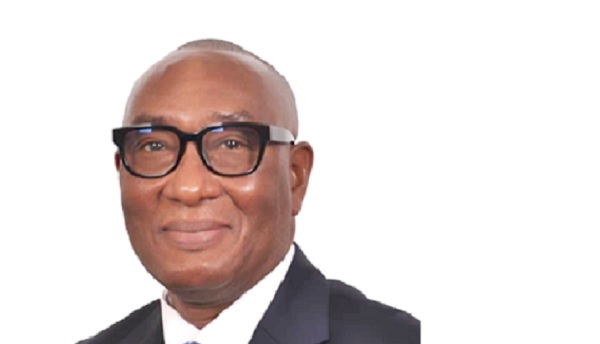
Man to the rescue of Ghanaians in Libya
A black-windowed Land Cruiser Sub-Urban Vehicle slowed to a halt in the deserted back streets of Misurata, Libya's coastal city west of Tripoli.
It is supposed to be one of the busiest streets in the city centre, but that day was Friday, and all shops and offices in that area were closed.
The Land Cruiser had a red registration plate, an indication that its occupants could be members of the diplomatic corps.
Before the vehicle stopped, two security cars blaring sirens had escorted the black Land Cruiser from Tripoli.
A bespectacled middle-aged man, most likely in his late fifties, stepped out of the car.
He wore a typical Ghanaian Northern smock and was accompanied by a tall gentleman who was later identified as Zakaria, an interpreter.
Flanked by three armed security personnel, the gentleman in a smock, Dr Samuel Adotey Anum, walked majestically in the scorching sun through the bustling market square in Misurata.
It is quite unusual for a non-Libyan to be flanked by gun-toting security men in the centre of a market.
All eyes in the market were directed at the Ghanaian diplomat, who was on a mission.
His purpose for being in that dusty, crowded market was very simple.
He was there to ascertain the welfare of Ghanaian citizens first-hand.
On that day, he met Ghanaian shop owners who dealt in Ghanaian food items and products.
Onlookers of different nationalities who had thronged into the market gawked as he walked into the shops to interact with Ghanaians who had come to patronise Ghanaian food.
Career
Dr Anum's diplomatic career has taken him to New York, Pretoria, Berlin and Geneva, where he has been hailed as a diplomat who built bridges among the Ghanaian communities.
His first ambassadorial post, 20 years later in Libya did not come as a surprise to those who knew him previously as a consular officer.
Despite all these challenges, he took the reins at the embassy after a long absence of an ambassador.
Dr Anum went straight to work.
He took a rather bold initiative by negotiating with his Libyan counterparts, especially in the Interior Ministry, the immigration department, the police, and the municipality heads, to register all Ghanaians in their various municipalities.
He prioritised the welfare of Ghanaians as his major objective and called upon all Ghanaians to register at the Ghana Embassy.
This registration exercise is done through the various Ghanaian communities that have been set up in cities and towns all over Libya to oversee the concerns and well-being of Ghanaians.
He negotiated to secure the release of some Ghanaian prisoners who were believed to have fought for an unrecognised military entity.
Activities
His second time of coming to Libya as Ghana’s Ambassador to the State of Libya has seen him engaged in numerous activities in the past two and half years’ tenure in office.
This, among others, is to strengthen the relationship within the Ghanaian community.
This included the reorganisation of the Ghanaian community/unions and community outreach.
They have been to Benghazi, Misurata, Zawiya, Garabouli, Zliten, Gharyan, Sabratha, Zuwara/Rigdalin, Nalut and Ghadamis.
Another groundbreaking innovative effort is the formation of the Council of Ghanaian Union Leaders in Libya (COGUL) as the Umbrella Ghanaian Union in Libya to work with the mission in the interests of Ghanaian nationals.
Moreover, there is an Innovative Online Consul services, which is in collaboration with the International Organisation of Migration (IOM).
This initiative enables undocumented Ghanaians who reside in distant locations to interact with IOM officials in nearby towns.
In addition to the consular involvements, Dr Anum’s tenure has resulted in the preparing of Generic Contract documents for Ghanaian workers.
These documents enable the workers to come into contractual terms with their Libyan employers.
Legal
Besides, arrangements with certain healthcare facilities have also been made for Ghanaians to access health care.
The mission has as well arranged with private attorneys for legal representation for Ghanaians during court cases.
It has also improved the procedures for the IOM voluntary repatriation programme.
(Eleven flights in two and half years, including Ghanaian prisoners and detainees).
His physical presence and his closeness to Ghanaians will be talked about long after he has left.
Ghanaians in Libya would wish he could stay longer, but as he takes a bow, he will leave an indelible mark on the corridors and hallways of the Ghana Embassy in Tripoli.
